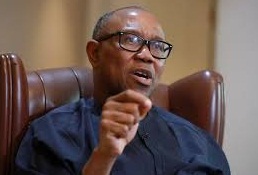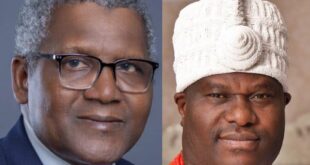The Labour Party’s Presidential Candidate at the last election, Peter Obi has expressed strong opposition to the Central Bank of Nigeria’s (CBN) implementation of a new Cybersecurity Levy, which requires banks to impose a 0.5% levy on all interbank electronic transactions.
Obi took to Twitter to condemn the directive, asserting that it reflects a government more focused on extracting funds from an already struggling economy rather than fostering its recovery and development.
In his tweet thread, Peter Obi stated, “The introduction of yet another tax, in the form of Cybersecurity Levy, on Nigerians who are already suffering severe economic distress is further proof that the government is more interested in milking a dying economy instead of nurturing it to recovery and growth.”
He highlighted the burden of multiple taxes on banking transactions and emphasizing that this levy contradicts the government’s commitment to simplifying the tax system.
Obi further criticized the imposition of the Cybersecurity Levy on businesses’ trading capital, noting its adverse effects on already dwindling capital reserves, worsened by currency devaluation and high inflation rates.
He argued against burdening citizens with funding all government activities separately, stressing that such policies not only impoverish the populace but also reduce the country’s economic competitiveness.
Peter Obi questioned the timing of introducing new taxes amidst efforts to curb inflation, expressing incredulity at the National Security Adviser’s office’s involvement in revenue collection, as stated in the cybersecurity law.
He however raised concerns about the rationale behind a purely national security office receiving returns from a specific tax, questioning the transparency and purpose of such arrangements.
 Startrend International Magazine For Your Latest News And Entertainment Gists
Startrend International Magazine For Your Latest News And Entertainment Gists





